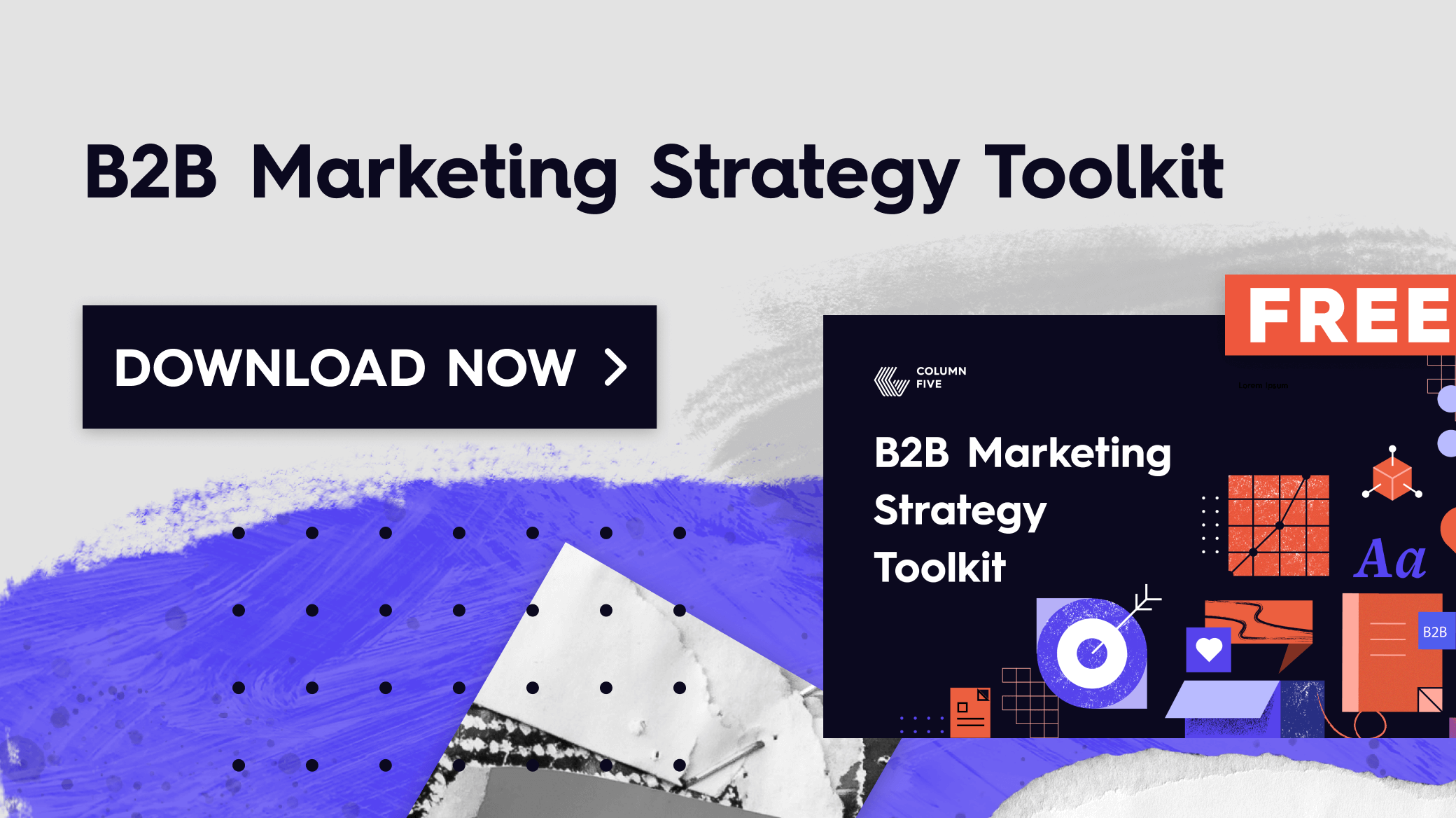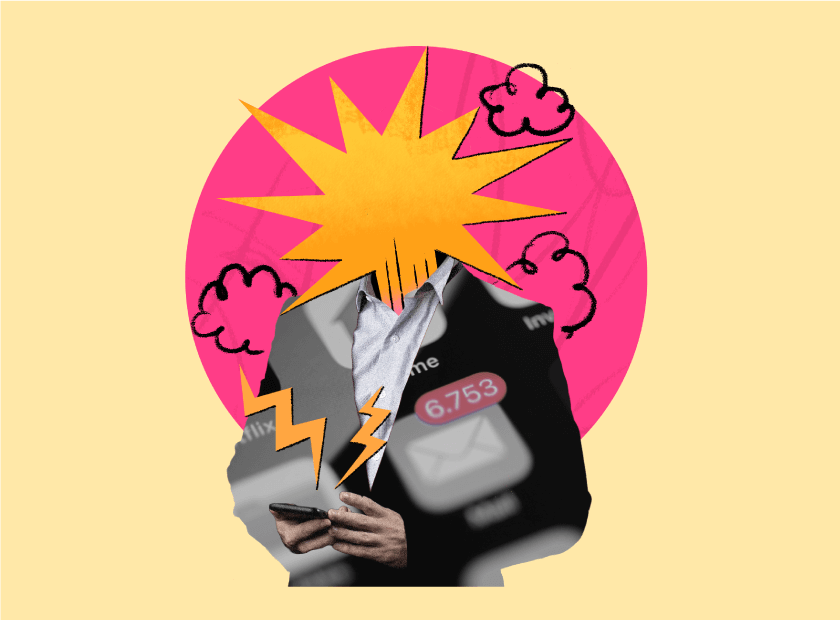The relationship between a brand and a B2B agency is a precious thing, and we love helping our brand partners win. Whether we’re tackling a rebrand, transforming their brand strategy, or creating content that connects with their ideal audience, the work we do together is challenging, exciting, and rewarding. And over the last decade, we’ve been lucky to partner with hundreds (OK, thousands) of brands to help them get their marketing operation in shape. But not every partnership has been a honeymoon, and not every brand has been a delight to work with. In fact, sometimes we’ve had to cut cords early and call it a day. Why? Because we can only help brands that are ready to help themselves.
Over the years, we’ve noticed several behaviors sabotage engagements again and again. Sometimes we can spot them from the jump. Other times they emerge from the shadows. But after having seen the good, the bad, and the ugly, we now know exactly what types of clients pose a threat to our sanity—and to themselves. So today we thought we’d do a deep dive into the most challenging types of clients we’ve dealt with to help you understand what prevents a b2b agency from doing their best work—and how you can build a healthy working relationship with your agency from the start.

5 Behaviors That Sabotage Your B2B Agency
From lack of foresight to lack of leaders, these are the top five things that are red flags when we evaluate a potential client.
1) They don’t know what they want to accomplish.
This is always the first sign of trouble when we talk to a potential client. It’s also one of the most common issues we encounter. In those early conversations, when the brand’s goals are vague (“um, we just want to grow”), their budget is unknown (“TBD”), and their current efforts are, well, questionable (“we don’t have a strategy”), we know that pleasing them might be difficult.
“If you aim at nothing, you will hit it every time.”
—Zig Ziglar
That’s not to say that you shouldn’t reach out to a b2b agency for help if you don’t have a perfect marketing machine already. Naturally, that’s why you’re turning to expert practitioners, the folks who have been there before. But if you don’t have clear goals to measure our success against, we’re both probably going to end up frustrated and disappointed with the partnership.
Tip: An agency can also help you prioritize your goals, but you need to have team consensus on what you’re trying to achieve. Make sure you’re all on the same page before you reach out.
2) No one on the team is actually empowered.
Believe it or not, there are companies (often startups) where a CMO is not trusted to select a b2b agency. This is a huge red flag that signals more discord down the road. (Frankly, if the CEO/Cofounder is the only one who can make that decision, why have a CMO on the payroll at all?)
Similarly, we’ve seen companies where even a VP doesn’t control the budget. (In that case, exactly what is the VP the VP of?!) In other cases, it’s a general lack of power and accountability across the board. Directors don’t know their goals, other team members don’t know their budget. How they do their jobs is a mystery.
When we see this lack of ownership in teams, which is often due to outside forces, we know these marketing teams are either NGMI, or they will need to fail their way through figuring this stuff out. Either way, we’re not interested in being the guinea pig—or the poor saps caught in the crossfires of decision-makers.
Tip: Identify your single point of contact (before you reach out), and know exactly who is empowered to make decisions on behalf of the team.
3) There are too many cooks in the kitchen.
Whereas some teams struggle to make any decision, other teams are plagued by too many decision-makers. In these cases, there is no clear shot-caller to move things along. Or someone claims to be the shot-caller but isn’t (and we get a flood of last-minute feedback from the “real” shot-caller). Or multiple people claim to be the shot-caller, and we find ourselves in the middle of a Game of Thrones-level power war.
Of course, it isn’t always that dramatic. Sometimes there is simply no clear system in place for decision-making. Sometimes it’s the majority rule. Sometimes it’s the person with the most senior title. Decisions are made on a whim or based on pure emotion, instead of a rubric or particular goal.
We know firsthand that this type of team dynamic will inevitably cause frustrating (and often costly) speedbumps at every step of the process.
Tip: Establish a clear decision-making process and system of review to avoid miscommunication on your end.
4) They’re indecisive.
Again, you’re not expected to come to your b2b agency with a perfect strategy and plan. The reason you’re hiring them is to guide those decisions. But when potential clients come to us without a strategy—and aren’t interested in working on one because they’d rather just churn out whatever project they’re currently working on—it’s a big red flag.
A solid strategy is crucial if you want to work effectively, track your progress, and improve your results. It helps ensure that everything you’re doing is aligned to your larger goal, and it provides a valuable framework for decision-making and planning. A strategy allows us to transition from blue sky thinking to actual planning and producing.
Occasionally we’ll encounter a potential partner that has a strategy but just hasn’t pulled the trigger yet. We know this can be scary to some because it feels like a point of no return, but that couldn’t be further from the truth. Rolling out a strategy is the only way to see how, where, and to which extent your beliefs were right. It’s also the baseline to course-correct if things aren’t working.
If you’re afraid to lose (and, certainly, you’re gonna take a few Ls in marketing), then you’re also too afraid to win. When we see partners who discount or de-prioritize strategy, we know it will be difficult to work together.
Tip: Consider strategy your starting point. The feedback you get is invaluable to adjust and tweak to succeed in the marketplace.
5) They’re impatient.
We can’t tell you how many times we’ve asked a potential client about their timeline and found out the due date was yesterday. I understand the urgency. I’ve never talked to a company that is growing faster than they want to. (If they were, they probably wouldn’t be reaching out to us to ask for help.) Everybody wants to win, and we can lend our expertise to help you do that.
But the truth is there are no shortcuts. Wanting maximum results, in the least amount of time, with the least amount of budget is a pipedream. (If you ever crack the code, please let me know.)
Building a marketing machine from scratch takes time, as does course-correcting when what you’re doing isn’t working. You need to set up a solid foundation, master the basics, stop doing things that are fruitless, implement your measurement infrastructure, and test intelligently. You can’t make those changes overnight, and you can’t expect to get those results overnight.
Ultimately, marketing leaders need to be bold and aspirational, but they need to be able to absorb and channel leadership’s pressure to get fast results in a smart and productive way. Without realistic expectations, both agency and brand are set up to fail.
Tip: Set your sights on achievable and sustainable success, not one-hit wonder virality.
How to Build a Good Working Relationship with a B2B Agency
Although we’ve learned these lessons the hard way, we are very happy with the partners we work with now, and we attribute our success to our team, our infrastructure, and our selectivity in the clients we do take on. If you’re a brand that’s looking for your own partner, follow these tips to collaborate in the most productive and fruitful way.
- Find an expert in your field. B2B marketers (especially in tech) struggle to find agency partners that really understand their business, which is why you often need to look within your niche. (For example, we specialize in growth-stage SaaS marketing.) See our tips to find the right agency for you.
- Treat each other as partners. An agency isn’t a gun-for-hire, and if you treat them like the help, they will not be invested in your long-term success. Instead, follow these tips to nurture a collaborative relationship from the start.
- Establish lines of communication early and often. We use AgencyAgile practices to keep our engagements on track, provide transparency to our clients, and ensure we have approval before we move to the next stage of the process. But every agency is different. Establish communication channels up front and respect them.
Of course, if you think we might be the right fit, we’d love to talk about how we can help you get the marketing growth you deserve. Start by taking a look at our FAQs, or reach out. If you want a healthy and happy partnership, we’d love one too.





